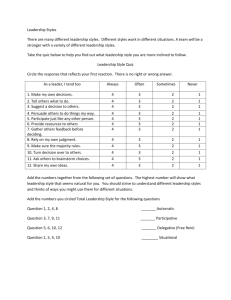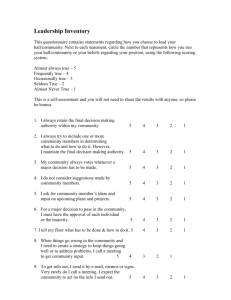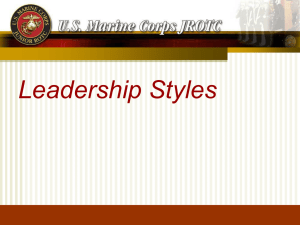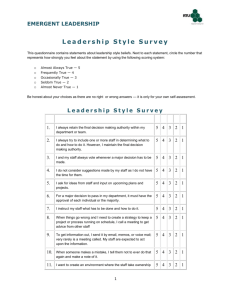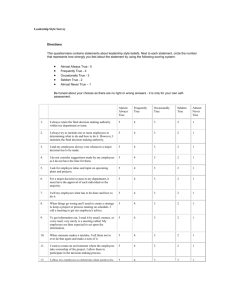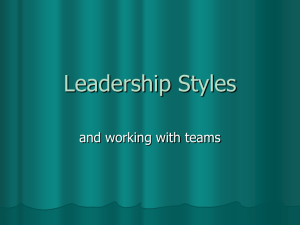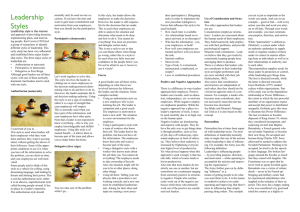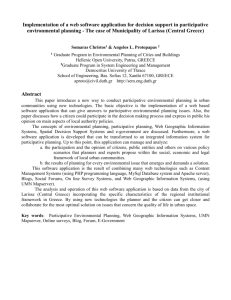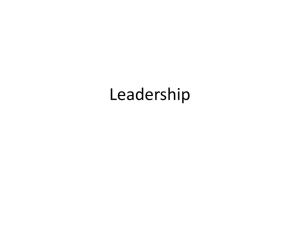Leadership Style
advertisement
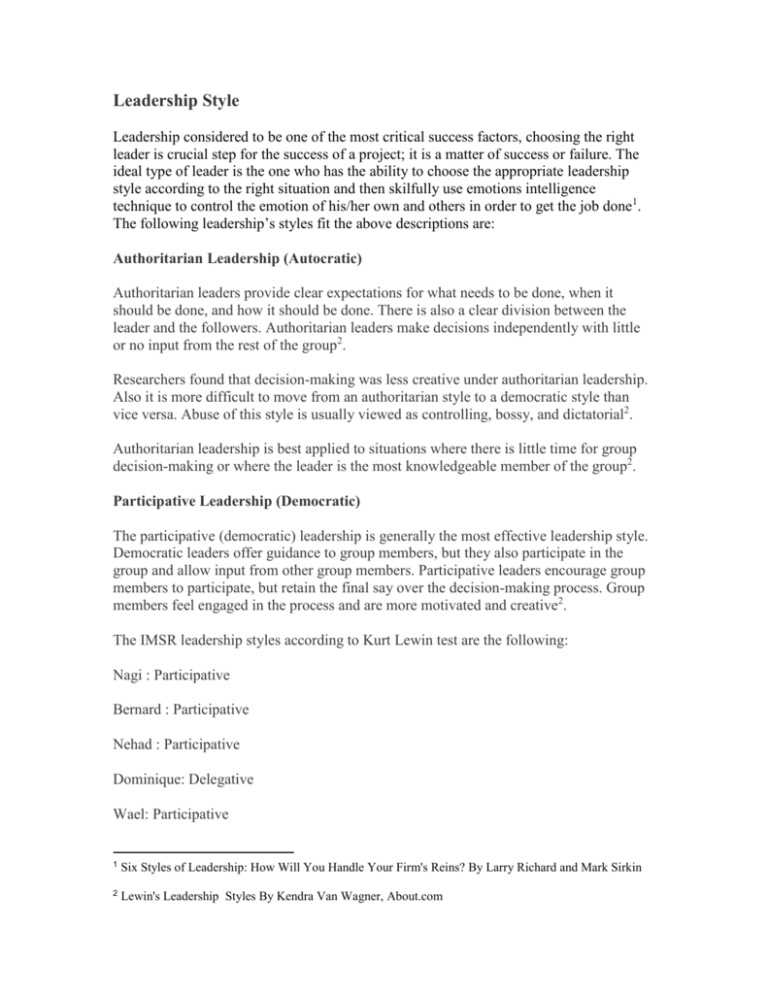
Leadership Style Leadership considered to be one of the most critical success factors, choosing the right leader is crucial step for the success of a project; it is a matter of success or failure. The ideal type of leader is the one who has the ability to choose the appropriate leadership style according to the right situation and then skilfully use emotions intelligence technique to control the emotion of his/her own and others in order to get the job done1. The following leadership’s styles fit the above descriptions are: Authoritarian Leadership (Autocratic) Authoritarian leaders provide clear expectations for what needs to be done, when it should be done, and how it should be done. There is also a clear division between the leader and the followers. Authoritarian leaders make decisions independently with little or no input from the rest of the group2. Researchers found that decision-making was less creative under authoritarian leadership. Also it is more difficult to move from an authoritarian style to a democratic style than vice versa. Abuse of this style is usually viewed as controlling, bossy, and dictatorial2. Authoritarian leadership is best applied to situations where there is little time for group decision-making or where the leader is the most knowledgeable member of the group2. Participative Leadership (Democratic) The participative (democratic) leadership is generally the most effective leadership style. Democratic leaders offer guidance to group members, but they also participate in the group and allow input from other group members. Participative leaders encourage group members to participate, but retain the final say over the decision-making process. Group members feel engaged in the process and are more motivated and creative2. The IMSR leadership styles according to Kurt Lewin test are the following: Nagi : Participative Bernard : Participative Nehad : Participative Dominique: Delegative Wael: Participative 1 Six Styles of Leadership: How Will You Handle Your Firm's Reins? By Larry Richard and Mark Sirkin 2 Lewin's Leadership Styles By Kendra Van Wagner, About.com The test shows that most of the team members have Participative leadership style except for Dominique who has Delegative leadership style. This explains why our team has worked together very well in democratic kind of environment where most of the decisions made by getting the team members inputs and feedback which has influence and enriched the decision process. The team members tend to be encouraged and motivated by this kind of leadership style. The Participative leadership style of the team led to more effective and right decisions, due to the fact that no leader can be an expert in all areas. The inputs from team members with specialized knowledge and expertise have formed a more integrated foundation for making decision which helped tremendously the acceleration of project implementation in timely fashion with a high quality of work. Delegative (Laissez-Faire) Delegative leaders offer little or no guidance to group members and leave decisionmaking up to group members. While this style can be effective in situations where group members are highly qualified in an area of expertise, it often leads to poorly defined roles and a lack of motivation2.
